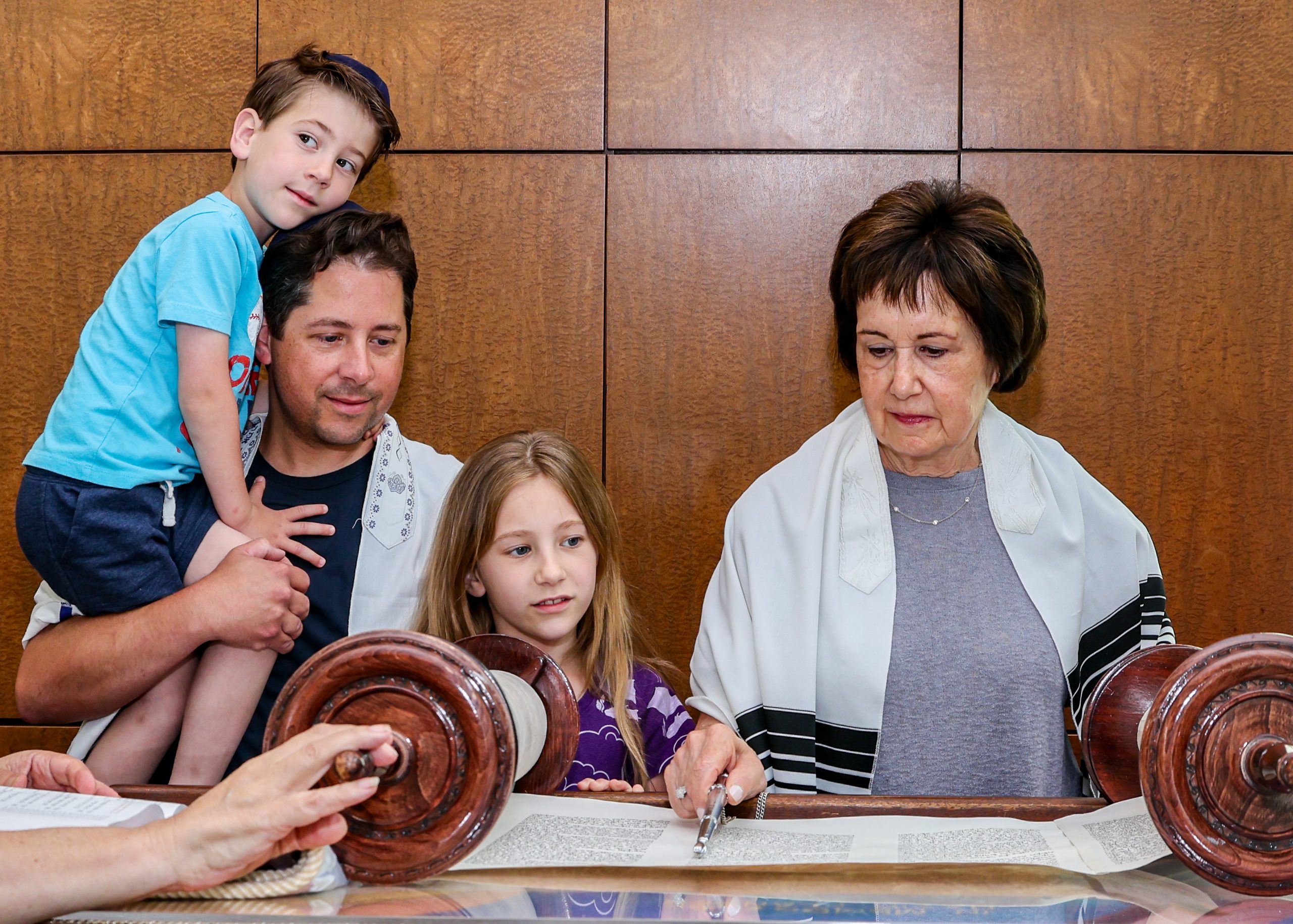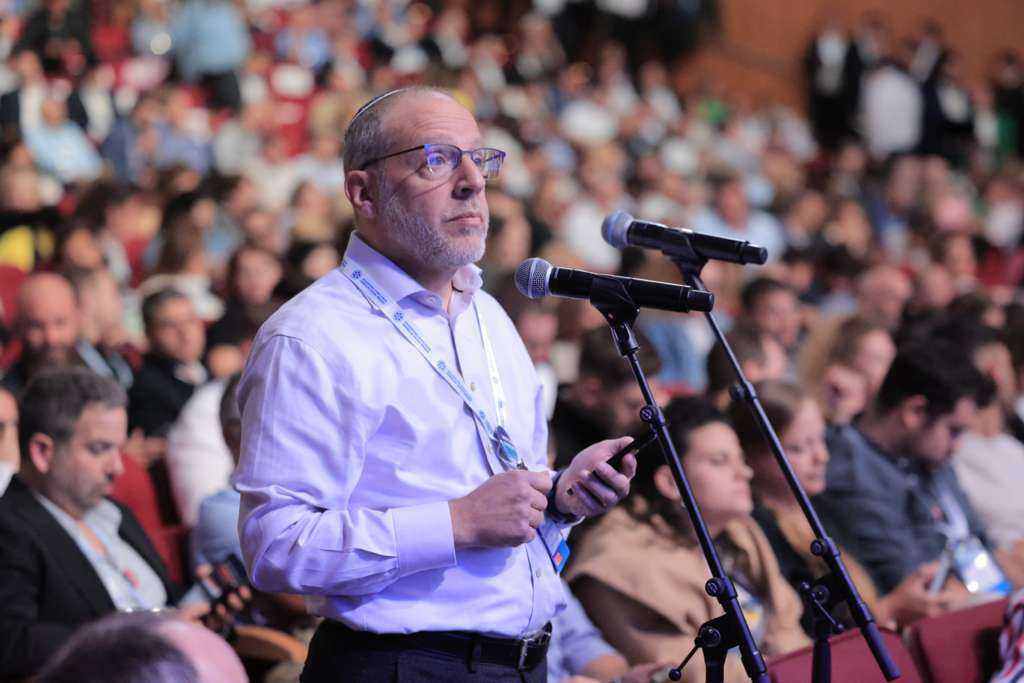As a result of changes necessitated by COVID related restrictions and concerns, the mission and values of Congregation Beth Tikvah are now more aligned with our programming and processes. As a result, membership, giving, and participation are all up. Congregant connections to the Holy are up. The sense of community within the congregational family is palpable, with no in person programming. It is often in moments of change and transition when Jews look to Judaism to help guide them along the way; seize this opportunity to do that just that. For the people you serve, for those whom you do not yet serve, for your organization, God, Torah, and the Jewish people.
Once COVID-19 struck, synagogue leadership immediately recognized an opportunity to increase our impact within and beyond the congregation. COVID-19 enabled us to better communicate our vision and direction as a small and vibrant Kehila Kedosha, a sacred community. It seemed to place our small shul on equal footing with big shuls to articulate our core values, get those values into the larger communal conversation, and reach previously unreached Jews who are seeking community during this time of separation.
Below are some of our approaches and successes. Should you find them helpful, we welcome you to utilize them for your community. They are divided into seven areas of focus.
ESTABLISHMENT OF COVID TASK FORCE: Immediately upon shutting down our physical gatherings, the synagogue president established a COVID task force to address all aspects of synagogue life. Led by our immediate past president and consisting of our Vice-Presidents, our rabbi, and our synagogue administrator, this group began meeting weekly. The president tasked this group with identifying the values that would drive our decision making, and then to put those values into practice. While we had functioning committees and a monthly board meeting prior to COVID, meetings with executive leadership were haphazard at best. By regularly bringing together top leadership, we were not only equipped to manage COVID related questions and concerns, but we began collaborating across department to increase communication and improve overall functionality. All areas of synagogue life came to function more consistently in accordance with our values. We set guidelines for reopening and metrics for health and safety standards. We examined our budgetary priorities and limitations, established a phone tree (below), quickly set up processes for examining Jewish practice (below), saw to effective communication with congregants about the state of the synagogue, and then some. Most importantly, all questions, requests, and complaints about our decisions were funneled through this group. Throughout, this group remained thoughtful, compassionate, honest, and transparent.
CARING MINYANIM AND CONGREGANT CONTACT: It is a core value of our congregation to know each congregant individually and deeply. Immediately upon our physical closure, our Rabbi began a process of calling each congregant to check in. Those calls revealed that there were congregants with resources to offer and others with acute and ongoing pastoral and personal needs. We then took action to meet those needs by pairing congregants when appropriate. Further, our COVID task force established a “Caring Minyan,” a team of volunteers to make weekly calls to each congregant to check in. The Caring Minyan was tasked with ensuring that every congregant had safe access to food and medication, and that everyone heard from a friendly caring voice each week. As a result, relationships among members, and between members and the synagogue, were strengthened. Despite a closed building, we maintained near 100% of our members, and giving has also increased. Many congregants expressed that they feel more connected to the shul now than they did before COVID struck.
HIGH HOLIDAYS AND HIGH HOLIDAY TASK FORCE: In late Spring, in collaboration with the Ritual Committee, the COVID Task Force established a separate High Holiday Task Force. This group brought together a wide cross-section of leaders from various synagogue committees and subgroups to vision and implement our High Holidays. It was imperative to all that these High Holidays not just be a suitable substitute for an in-person gathering, but would instead provide deeply meaningful high holiday experiences in their own right. Rather than just “good enough,” High Holiday services and experiences needed to be reconstructed to serve our community’s spiritual lives in this moment. The task force organized a synagogue-wide survey that had an over 70% response rate. The survey results drove our planning, which subsequently increased congregant buy-in. The result was a series of high holiday services and experiences that represented our values, were well attended, and were meaningful, innovative, and resonant. Dozens of volunteers felt personally committed to bringing the services and experiences to life, and they continue to feel more deeply passionate about our community as a result. The response has been overwhelming.
MOBILE SUKKAH AND COMMUNITY ENGAGEMENT: Since COVID hit, we have increasingly utilized social media to do both inreach to our members and outreach to non-members. Among other programs, we initiated a weekly Facebook Live check-in, a weekly virtual healing service, and a weekly Tot tuck-in. These programs are free and open to anyone. During Sukkot, we brought our message beyond the computer screen to each neighborhood in a safe, fun, and memorable way. We partnered with a local car dealership to borrow a pickup truck in which we built a mobile Sukkah. Our Sukkah made 19 stops throughout the community and served over 400 adults and children, more than half of whom were not members. Each participant said the blessing for sitting in the Sukkah, shook the lulav and etrog, and had their picture taken in the Sukkah to be tagged on social media. Four local news channels covered it, and thanks to the generosity of the car dealer, the project cost us less than $50. Many unaffiliated Jews met us, asked questions about who we are, developed a positive association with our community, and a few even joined.
SOCIAL WORKER AND CONSTITUENT SUPPORT: We support the full emotional, spiritual, and practical lives of our members. We learned from our Caring Minyan phone calls that families with children at home were particularly struggling. In response, our Religious School leadership contacted the local Jewish Family and Children’s Service (JFCS) to inquire about contracting with a social worker to meet with our families. The social worker could connect families in need with appropriate resources and supports. The conversation with JFCS opened the door to a larger partnership with them to employ an MSW candidate to work with all CBT members as a benefit of membership. As a result of this collaboration, we have begun an Isolation Support Group, individualized meetings for families with small children, 15-minute mindfulness sessions for congregants of all ages, socio-spiritual support gatherings, monthly mindfulness articles, and more. Our social worker, an MSW candidate, cannot be paid while receiving her clinical hours. The synagogue serves as her “site,” and she receives supervision and oversight from the JFCS. Dozens of congregants have already taken advantage of these services, and we hope to be able to support the full spectrum of needs expressed by our congregants during COVID. This is remarkably inexpensive to do and our members deeply appreciate having the resource available to them.
SUMMER MITZVAH BRIGADE AND YOUTH PROGRAMMING: When the local JCC camp and the Reform, Conservative, and Reconstructionist movement camps announced that they would not have in-person camping during the summer, we saw an opportunity to bring children and families into meaningful engagement with Mitzvot and with our community. We offered the entire community, for free, a brief weekly teaching and story about a particular Mitzvah on Monday afternoons. We offered practical ways for children to put that Mitzvah into action during the week, and collected photos and stories of the children doing the Mitzvot to publicize their accomplishments on social media. We had strong non-member participation and felt that we provided a program that added a sense of community, value, and purpose for our families over the summer. We received coverage in the local media and cultivated new relationships in the community. Most importantly, we cultivated new relationships between children and Mitzvot. After a total restructuring, our school continues to meet virtually.
SHABBAT SERVICES, RITUAL, AND ALIYOT: During the shutdown, our ritual committee opted to hold full, traditional services with a Torah service, including reading from the Torah, over Zoom. We understood that this is not comfortable for all communities, or even for all our members, but it felt most appropriate for our committee’s and Rabbi’s approaches to Jewish expression. We became the only congregation in our area to be conducting a full service from our Bima with a traditional matbea both on Friday night and Saturday morning, and have attracted participants from all over the country. Our rabbi and cantor lead from the bima with appropriate PPE, streaming via Zoom. Further, a volunteer agreed to invite congregants celebrating birthdays, anniversaries, and other simchas to join us for an Aliyah, bringing increased joy to our gatherings. More than ever, Shabbat is anchoring our congregants’ week, and more people are actively participating. A group of congregant volunteers even began leading a virtual Havdalah each Saturday night. There is a lay-led virtual morning Minyan twice a week, after which congregants share a meal over Zoom. Through engagement, volunteerism, and a clear articulation of our values, our spiritual life is stronger than ever despite a closed building.









